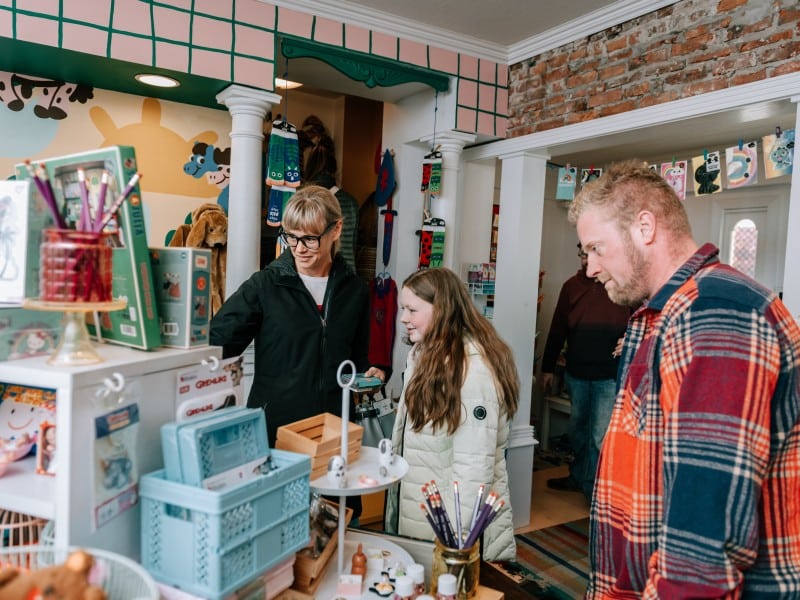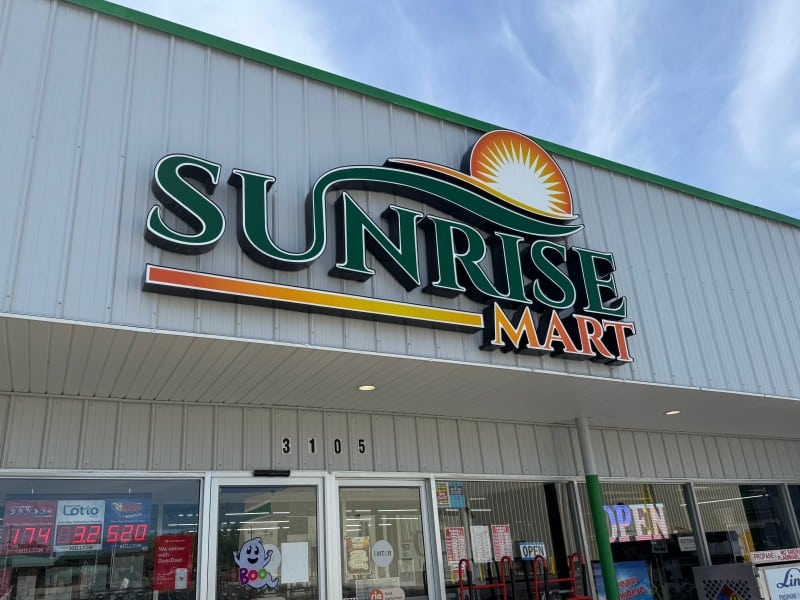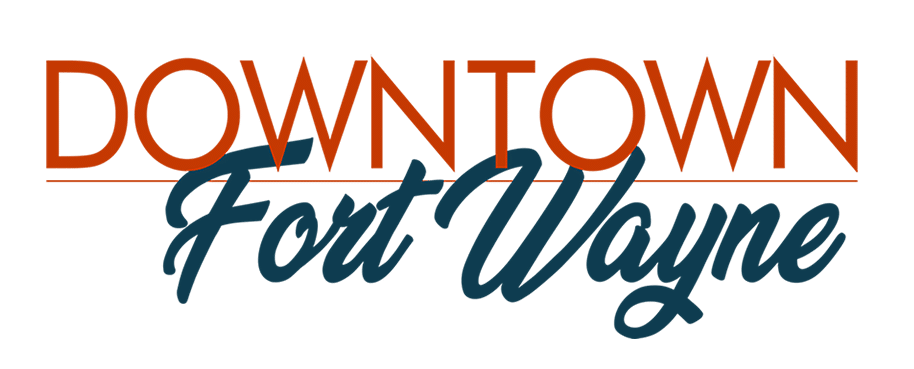How is the pandemic ‘shecession’ impacting female entrepreneurs in Fort Wayne?
We ask local women to weigh in.
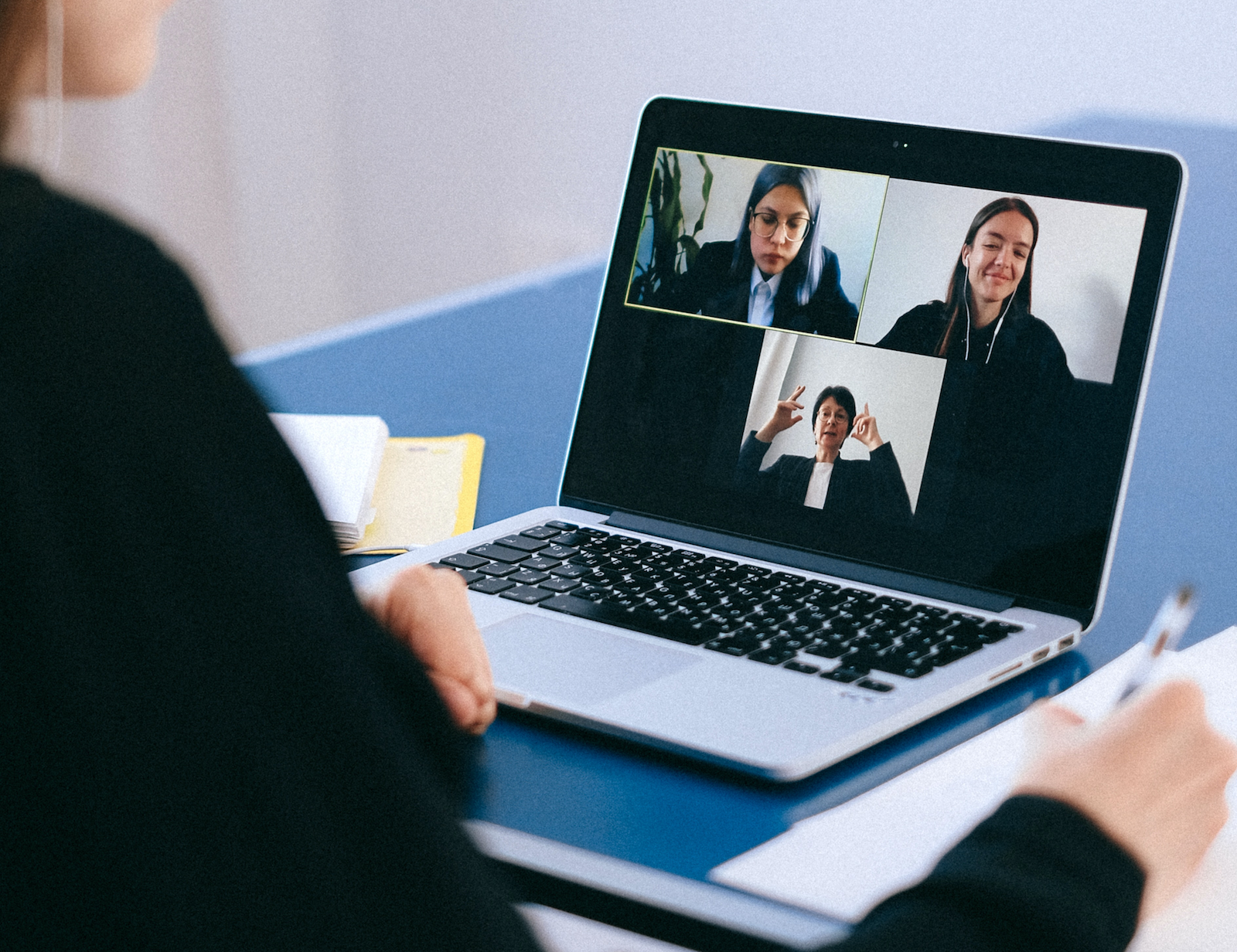
Since the COVID-19 pandemic began, its effects have been global, but not equal.
While some businesses are forced to close, others thrive. And across the gender divide, the differences are stark.
In December 2020 alone, the National Women’s Law Center reported that women lost a total of 156,000 jobs, while men gained 16,000 jobs. Of the net 9.8 million jobs lost since February 2020, women have accounted for 55 percent of them.
The moniker “shecession” has been used to describe this phenomenon. Whereas previous recessions have disproportionately impacted men’s employment, the pandemic recession of 2020 is hitting female employment harder for multiple reasons. According to early data, the causes range from the types of industries women dominate to the caretaker role in families women predominantly assume when children are out of school or elderly parents are ill.
So how is the shecession affecting women in Fort Wayne? This story is part of a two-part series, exploring that question from the perspective of female entrepreneurs.
We meet six local women who are members of Own Your Success, a group for female entrepreneurs in Fort Wayne, and learn about their pandemic experiences.
***
Sarah Arnold founded Socially Seasoned about eight years ago as a digital marketing agency for Fort Wayne area businesses and organizations.
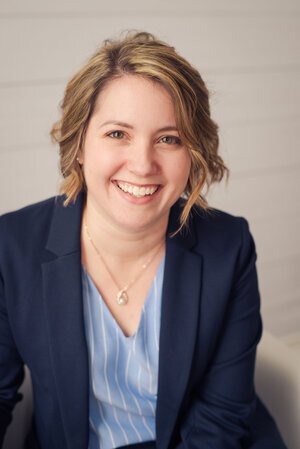
From day one, she has worked remotely and run the company by herself, so when the pandemic began, it didn’t change her work environment, per se. But she did worry that her clients’ marketing budgets would take a hit.
“I thought, ‘The first cut people are going to make is marketing, so I’m going to lose clients,’” Arnold says. “But really, the opposite happened.”
Arnold quickly found herself buried in work for clients who could no longer meet with their customers face-to-face and wanted to upgrade their digital communications.
“Instead of trying to over-exert myself to meet the demand, I’ve hired four people in the last year, and our business continues to grow month after month,” Arnold says.
But while the pandemic has unexpectedly boosted her business in some ways, it has also changed her family’s work-life dynamics. In the fall of 2020, Arnold and her husband decided to homeschool their two elementary-aged children for the first time to avoid the threat of COVID-19 and the challenges of virtual learning.
“It’s something I never thought I would do,” Arnold says. “Our kids were in a great school, but we just thought it was the safest option, and it has definitely changed how I manage my time at work and home.”

Arnold’s parents, who live nearby, help her and her husband manage homeschooling on top of full-time work.
“As caretakers, we’ve each selected our skillsets, and we homeschool in those subjects,” Arnold says. “A lot of the homeschooling does fall on me; however, I will say that, despite the craziness, it’s almost brought our family closer together this year.”
***
As the pandemic shifts work-life dynamics for women and families, the changes aren’t all bad. That’s something Andie Hines-Lagemann has noticed among many of the women she coaches at Own Your Success.
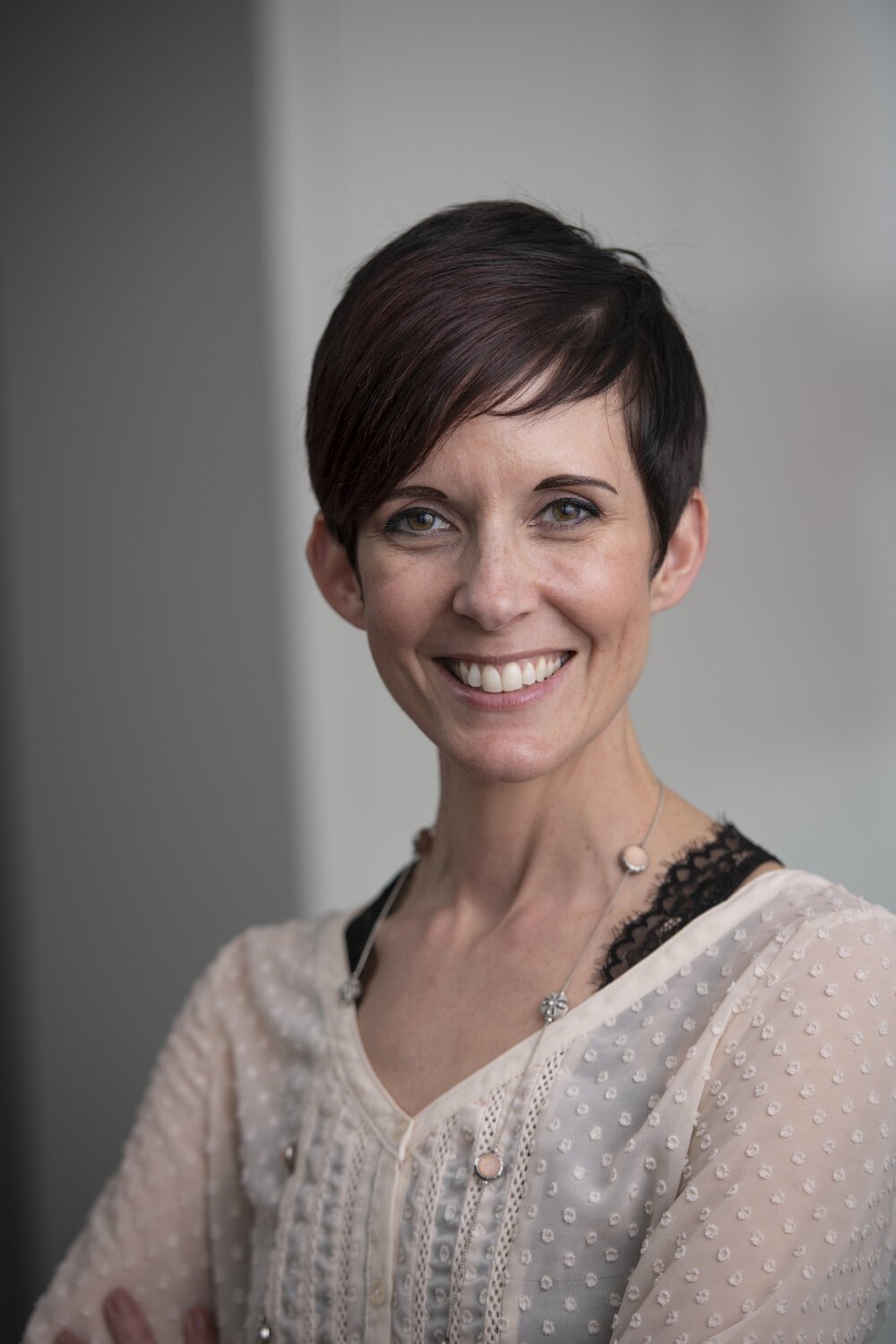
She founded the group for female entrepreneurs in 2014 and has grown it to more than 640 members. While only 23 percent of entrepreneurs in the U.S. are women, that number is even smaller in Fort Wayne at about 5 percent. Since the pandemic began, Hines-Lagemann says many of the women she works with—including herself—have been reassessing their purpose and mission as it relates to their businesses.
“It’s been really interesting to see how many women have pivoted their business during this time,” she says, offering her own story as an example.
Before the pandemic, Hines-Lagemann was largely focused on planning corporate events, which came to a dead halt in March 2020.
“I went several months with no client activity,” she says.
Thankfully, she was able to sustain her family during this time and take the opportunity to get introspective.
“I found myself asking: Why am I doing what I’m doing, and what do I really want to do?” Hines-Lagemann says.
She describes this shift as a “wakeup call,” allowing her to get back to her passion for coaching by becoming an Emotional Intelligence Practitioner for her new venture Tidewater Coaching.
“I realized that I sort of fell into marketing and events just because I always did it and not because it set my guts on fire,” she says. “The pandemic gave me an opportunity to reevaluate and start a different business.”
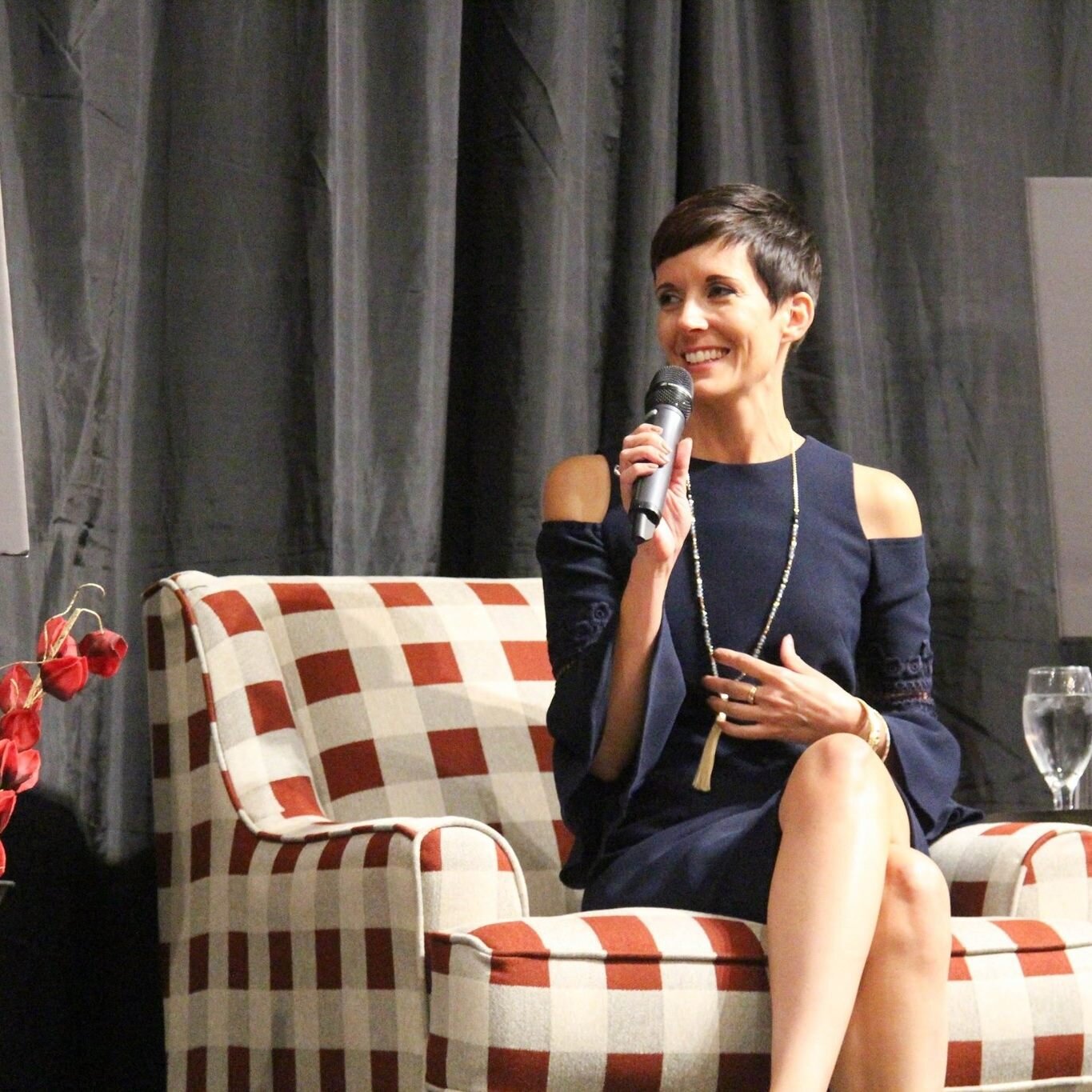
Even so, Hines-Lagemann realizes that having the financial capacity to step back and evaluate her life is a privilege that many women haven’t had during a stressful and costly pandemic.
“When I talk about this, it sounds so privileged,” she says. “It feels almost gross to say. But I have seen this shift in many of the women I’m coaching, where they’ve lost a job or lost clients during the pandemic, and what they’re doing for a living has changed.”
***
Amanda Klingenberger, a serial entrepreneur, made the transition to launch her corporate gifting company, Linden Square, just before the pandemic began—and the crisis has changed her young business’s trajectory.

When she started Linden Square in October 2019, she was leaving the stability of a 25-plus year career in the healthcare industry to pursue her passion project.
“It was the first time I wasn’t getting a paycheck working for someone else, and I didn’t have two or three jobs,” she says. “Ever since I was 13, I’ve been bringing in my own money.”
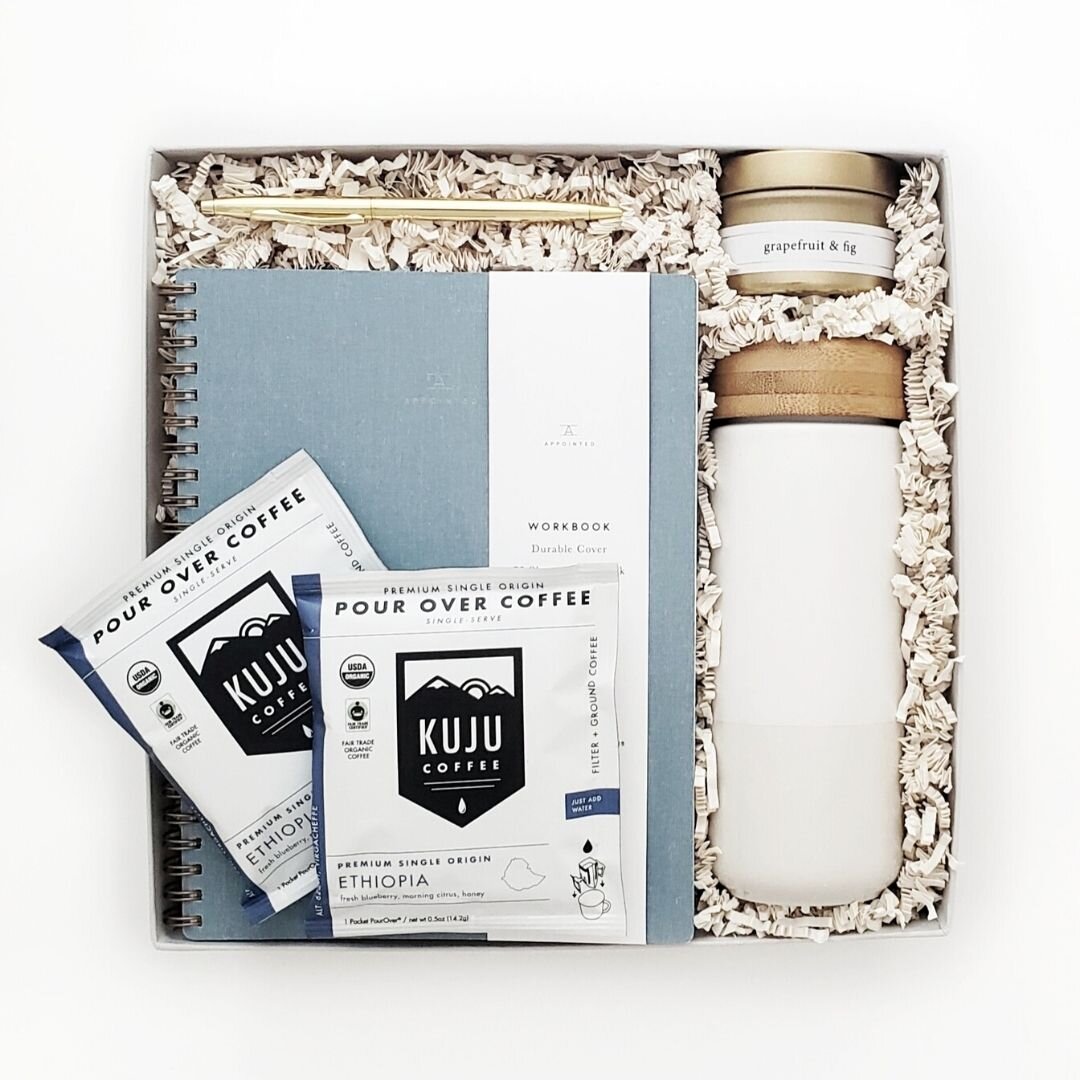
In 2019, Klingenberger designed her company to do corporate gifting during the holiday season. She took a small break after the Christmas rush to have a scheduled surgery. Then she was planning to restart her business in 2020—just two weeks before the federal shutdown.
“We had several contracts lined up for events throughout the summer, and I was looking forward to those,” she says. “We were actively doing proposals and sourcing.”
But when the shutdown began, many of Klingenberger’s planned contracts fell by the wayside.
“The business we had lined up was suddenly nonexistent, and we were just trying to figure out how to pivot in this space,” she says.

Thankfully, Linden Square’s space—gifting and shipping—was a good one to be in during the pandemic. Soon, people across the U.S. began looking for ways to send care packages to employees and loved ones, so she shifted her business to accommodate these trends as well as gifting from virtual events.
But while being a young company made her business nimble in some ways, it also required her to do twice the amount of legwork as a traditional startup.
“I’ve participated in two healthcare startups in the past, and I have never worked so hard,” Klingenberger says.
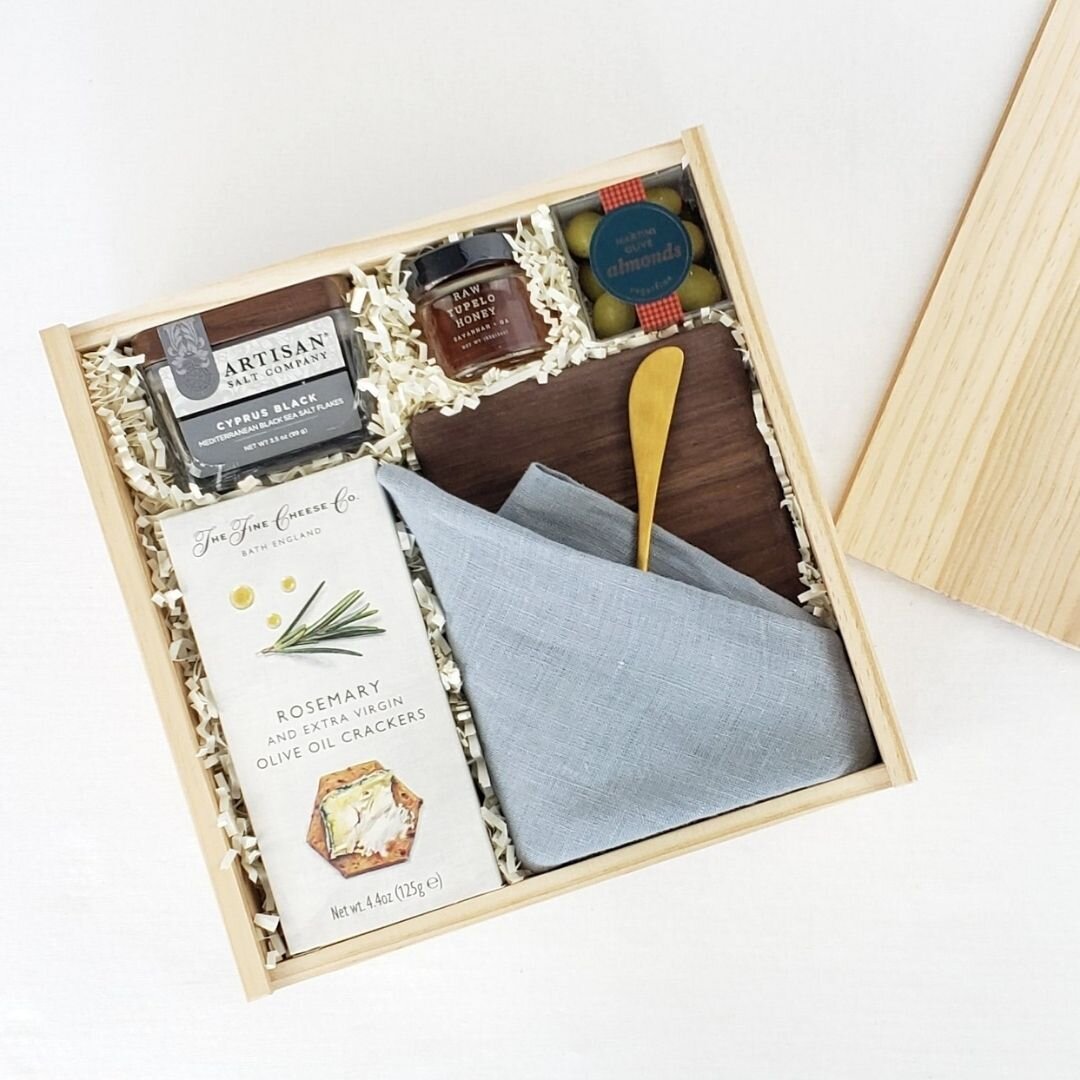
While she originally left her demanding job in healthcare to spend more time with her family at home, she found herself and her CFO husband working 60-hours or more on her startup. They were meeting with business coaches and crafting new proposals for clients—not to mention dealing with supply chain shortages due to the pandemic.
“I feel like I’m in this dance where every time somebody claps, I have to pivot to another direction,” she says. “It’s great that we have that ability, but it’s also exhausting.”
Despite the challenges, Klingenberger says her business is still going and growing during the pandemic.
“I just wish we were in business longer before pandemic hit because when you’re a one-man crew just starting out, you don’t have the resources of a larger business to pivot,” she says. “Everything is on you.”
***
Launching a business during a pandemic is something that Flora Barron, Founder of Kanela, knows well.

As a former teacher and one of two sisters behind the popular Flora & Lily’s Mexican Kitchen food truck, Barron planned to open her own downtown coffee and smoothie shop just before the pandemic started. Prior to embarking on the venture, she and her husband had done their research. They wanted to build a company to extend Barron’s family legacy of owning a chain of Jugos Veracruz juiceries in Northern Mexico. They also wanted to add coffee and small bites to the mix.
So they flew out to Seattle to study craft coffee, and Barron graduated from SEED Fort Wayne’s Build Institute program for entrepreneurs in 2019. Through that program, she was quickly connected with a building for lease on The Landing in downtown Fort Wayne.
But soon after Barron signed her lease, the pandemic hit, stifling foot traffic downtown and nearly forcing her to close.
“Everything was set up to make this a very successful business, and everything was working well, except sales were so low the first few months when we opened in October 2020,” Barron says.

She recalls a particularly dark moment about a month after opening last winter where her daughter, who works for Kanela, found her crying in the back storage office.
“My husband and I had put so much into my dream, and I remember being in that storage office, crying because I didn’t think we were going to make it,” Barron says. “My daughter just said, ‘Mom, everything is going to be OK.’”

She was right. Working together, the family managed to sustain Kanela through the winter months. Now that the pandemic is subsiding and more residents are enjoying The Landing, they’re seeing “a light at the end of the tunnel.”
“I see my sales increasing more, and I am so thankful,” Barron says. “This experience has made me stronger and shown me that as human beings, we have the capacity to overcome. If we have good support systems and a good foundation, we can make it.”
***
Sadly, not all stories of brave entrepreneurship and endurance result in open businesses. When Christina Hay opened a Freshii franchise in downtown Fort Wayne with her two sons in 2016, she was passionate about their investment.
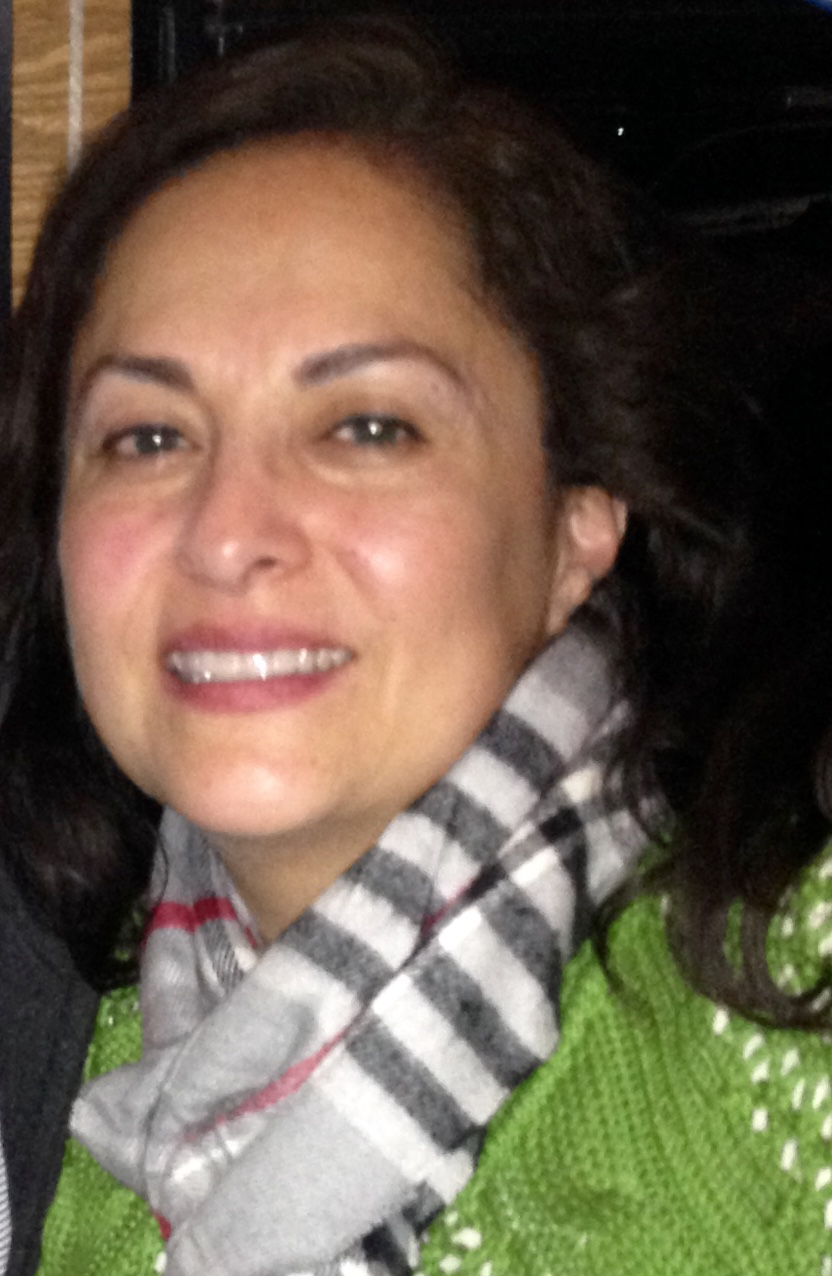
Her sons had grown up playing hockey, so they knew the importance of good nutrition, and many of the items Freshii carried for special dietary needs weren’t previously available in the Fort Wayne market. So they were filling a gap, and they went all-in.
“My husband and I had ourselves set up to retire in our 50s, and we invested our retirement in the restaurant,” Hay says.
Before the pandemic, her family devoted much of their time and energy to the business, too, working six days a week with at least one family member in the shop at all times. But when the pandemic began, many factors conspired against their ability to stay open.
First, Freshii’s food, made with fresh produce and ingredients, has a shelf life of about 24-48 hours, so they suddenly had a surplus of perishable products and no foot traffic from nearby businesses or events.
“Our location, in particular, presented a slew of challenges because downtown basically shut down,” Hay says. “Every attorney’s office and accounting firm went to work remotely, and we depended heavily on that foot traffic.”
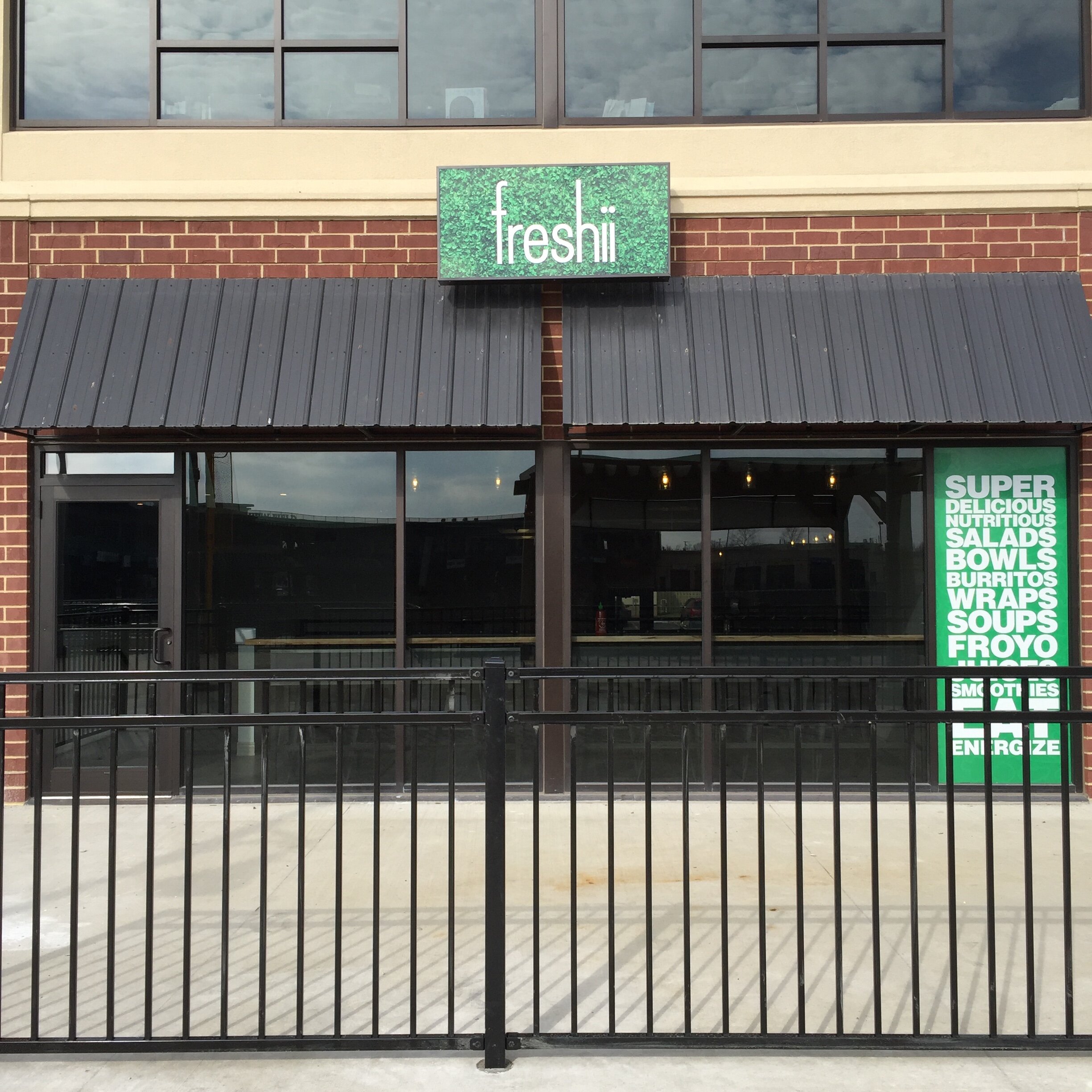
Located in The Harrison’s ground-level retail space near Parkview Field, Freshii didn’t have access to a parking lot or a drive-through window for easy carry-out business. While they donated food to frontline hospital staff to prevent it from being wasted, they had a hard time adapting their business model to the pandemic’s constraints on restaurants. Ultimately, they decided to close their doors, uncertain about the future.
“It was costing us more to be open than to stay closed,” Hay says.
On top of the logistical challenges of running a restaurant during a pandemic, Hay’s father grew ill in 2020, too, so she decided it was best to devote her time to family instead of business, which had taken precedence in her life before.
“I’ve never been a quitter, and my sons are both competitors, so we all just kept thinking: ‘We’re going to do this,’” Hay says. “But when my father fell ill, you realize what’s important, and I made the decision to spend time with my dad.”
When Hay’s dad died of his illness, she felt a deep sense of regret about missing out on so many family gatherings and putting so much energy into her restaurant.
“It’s made it all tougher,” she says.
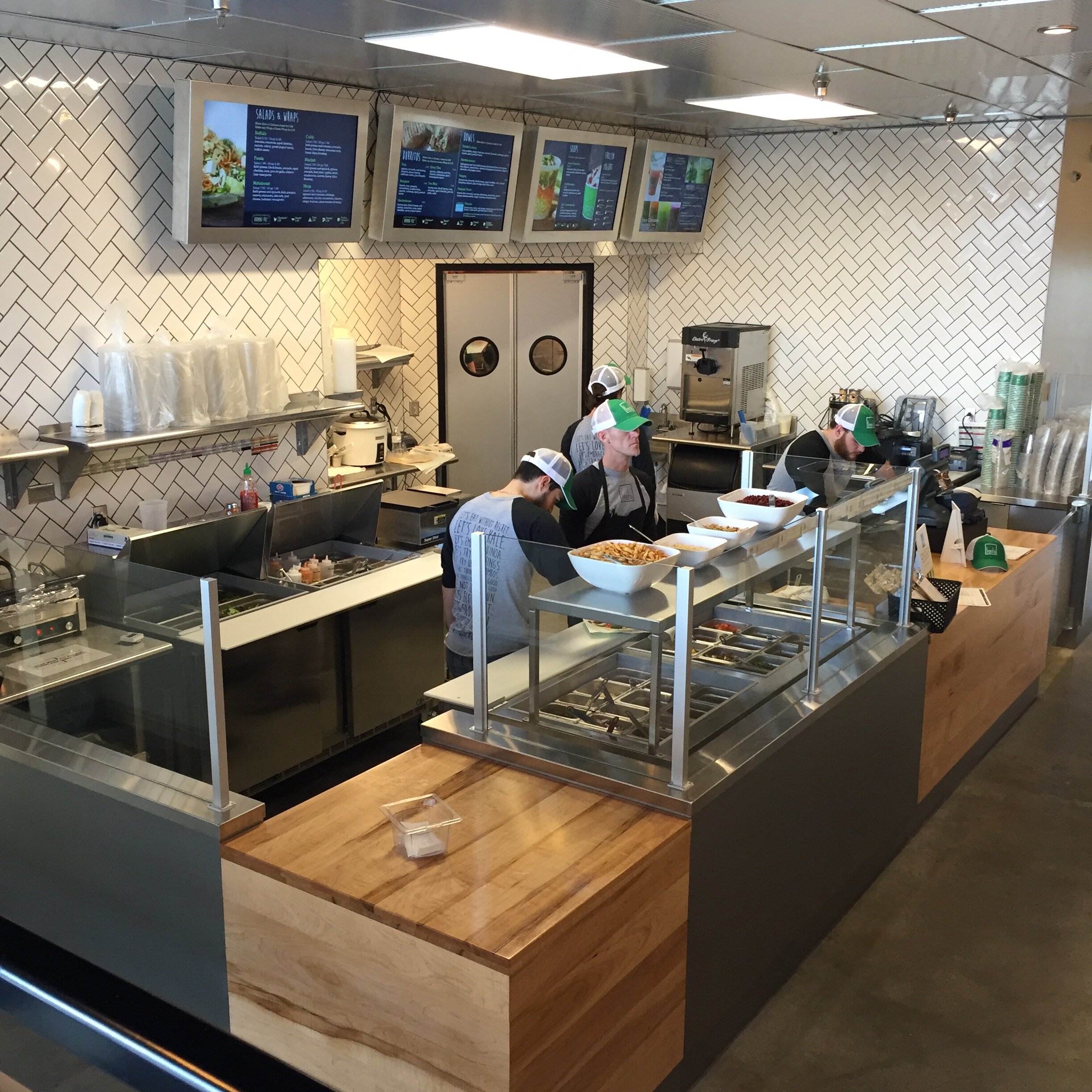
Even so, she is thankful for her family and for her faith during this tumultuous time, and she feels a sense of hope despite the challenges.
“For me, the pandemic has really taken a toll on all aspects of life,” she says. “The one bright spot in it, and I’m so thankful for it, is that it has strengthened my faith in God and my relationship with Jesus. I don’t think I would have survived without that. Another thing I keep telling myself is: I took the risk where others didn’t.”
To make up for lost profits, Hay has become a personal shopper for the time being. She’s also re-assessing her life and where she’s spending her energy in the future.
“It was so hard for me to accept that I couldn’t do everything,” she says. “I’ve realized that I’ve got to focus on one thing at a time.”
***
Regina Cannaday, Founder of the nonprofit Bounce Back of Indiana, has learned a similar lesson during the pandemic.

She launched her venture in 2014 to take her personal experience bouncing back from an unexpected financial crisis with her husband (simultaneously losing their jobs and home) and turn it into an opportunity to help others by creating a social safety net of sorts.
Today, Bounce Back of Indiana works with Brightpoint social services in Fort Wayne to identify families in need of financial assistance and coaching. Then, utilizing about 50 church partners, they create solutions for those falling through the gaps of social services.
When the pandemic began, this population of residents slipping through society’s gaps grew exponentially—almost overnight.
“We just blew up,” Cannaday says.

As the only employee working fulltime for her nonprofit alongside her board, she quickly realized the need was far greater than her organization—or any single organization—could handle. While Bounce Back of Indiana was being flooded with requests for help, many of the nonprofit’s previous donors were diverting dollars to bigger organizations, and there simply wasn’t enough funding to support grassroots solutions.
“It got to be so fast and furious that my board and I had to wonder: Are we even going to be in existence by the end of this year?” she says. “You can only stop the flood from coming into the ship for so long.”
Bounce Back of Indiana ended up closing for a month and a half in March and April of 2020, and Cannaday thought that was the end. But as stimulus money started flowing into the Fort Wayne community through the federal CARES Act, it increased the giving capacity at area churches, and she was able to resume meetings with pastors via telephone and Zoom to organize action.
“Most of our church partners took a 30-40 percent hit in their budgets themselves during the pandemic, so it was an incredible journey to see people step up and give until it hurt,” Cannaday says. “To me, that’s what community is about.”

Reflecting on the experience, she believes the pandemic has brought a new sense of urgency to her mission as a nonprofit entrepreneur.
“I was always passionate about our mission, but when you see people who don’t have food or electricity in their homes, it’s not just about feeding yourself and your soul anymore,” she says. “It’s about doing what you have to do and knocking on every door you can to help them.”
But while this urgency has confirmed that her work is “essential,” it’s also taken a toll on her mental and emotional health. As she thinks about the experience, she starts to cry.
“The pandemic has affected me and my company by bringing me to my knees a lot,” she says. “I’ve done a lot of soul searching this past year, and I can honestly tell you I’ve seen some things in myself that I have not liked. Sometimes, you get so busy constantly doing the work that you forget about yourself.”
After a rollercoaster year of nearly losing her business and putting out fires to help local families survive, Cannaday has scheduled her first personal vacation since the pandemic started. She hopes it will be a step toward greater self-care and emotional intelligence as an entrepreneur.
Her goal is not necessarily attaining the so-called “work-life balance,” but rather, establishing a healthy work-life fluidity.
“I have to reestablish my priorities,” she says. “You cannot be all things to all people all of the time, and as women, we do try.”


